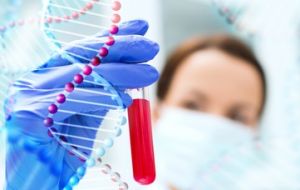MercoPress. South Atlantic News Agency
Researchers develop molecular test which calculates “biological age”
 “We can now measure aging before symptoms of decline or illness occur” said Prof Timmons.
“We can now measure aging before symptoms of decline or illness occur” said Prof Timmons.  The researchers chose to base their test on genetic changes linked with healthy aging, rather than searching for genes connected with disease or long life.
The researchers chose to base their test on genetic changes linked with healthy aging, rather than searching for genes connected with disease or long life. Researchers have developed a new molecular test designed to calculate an individual's “biological age” as opposed to their “chronological age.” They believe the test could lead to improvements in how age-related diseases are managed.
The study, published in Genome Biology, was a collaborative work carried out by researchers from King's College London in the UK, Karolinska Institutet in Sweden and Duke University in Durham, NC.
Lead author Prof. James Timmons, of King's College London, states that until now there has been no reliable way to measure how well a person is aging in comparison with their peers.
“Physical capacity such as strength or onset of disease is often used to assess 'healthy aging' in the elderly but in contrast, we can now measure aging before symptoms of decline or illness occur,” he says.
The researchers chose to base their test on genetic changes linked with healthy aging, rather than searching for genes connected with disease or long life. They discovered that the activation of 150 genes located in the brain, blood and muscles was associated with being healthy at the age of 65.
From this discovery, the team developed a formula that could determine how well an individual was aging compared with peers of the same age.
After testing the formula on a sample of people born at the same time, the researchers noted a wide variety of biological age scores, suggesting that an individual's biological age is distinct from their chronological age.
Prof. Timmons said that what determined an individual's biological age score was not related to lifestyle markers or associated with levels of exercise. Instead, the determining factor was something more fundamental to an individual's aging process.
“What is interesting,” Prof. Timmons said, “is that with a good 'biological age' you may well cope with a poor lifestyle, and of course vice versa.”
The researchers noted a link between low scores in the new test and cognitive decline. This finding indicates that in the future, the mechanics behind the test could be used to develop blood tests to identify people at a high risk of Alzheimer's disease and other dementias, signaling that they may benefit from early intervention.
In addition, the test could improve donor matching for older adults who require organ transplants, as well as reveal whether animal models of aging are useful for the testing of novel human anti-aging treatments.
Although the test offers insight into how healthy an individual's aging process is, the study does not show how individuals can improve their biological age.




Top Comments
Disclaimer & comment rules-

Read all comments“biological age”
Sep 13th, 2015 - 07:43 pm 0Well,
CFK will never use it,
talk abt aged dinosaurs...lol
Commenting for this story is now closed.
If you have a Facebook account, become a fan and comment on our Facebook Page!